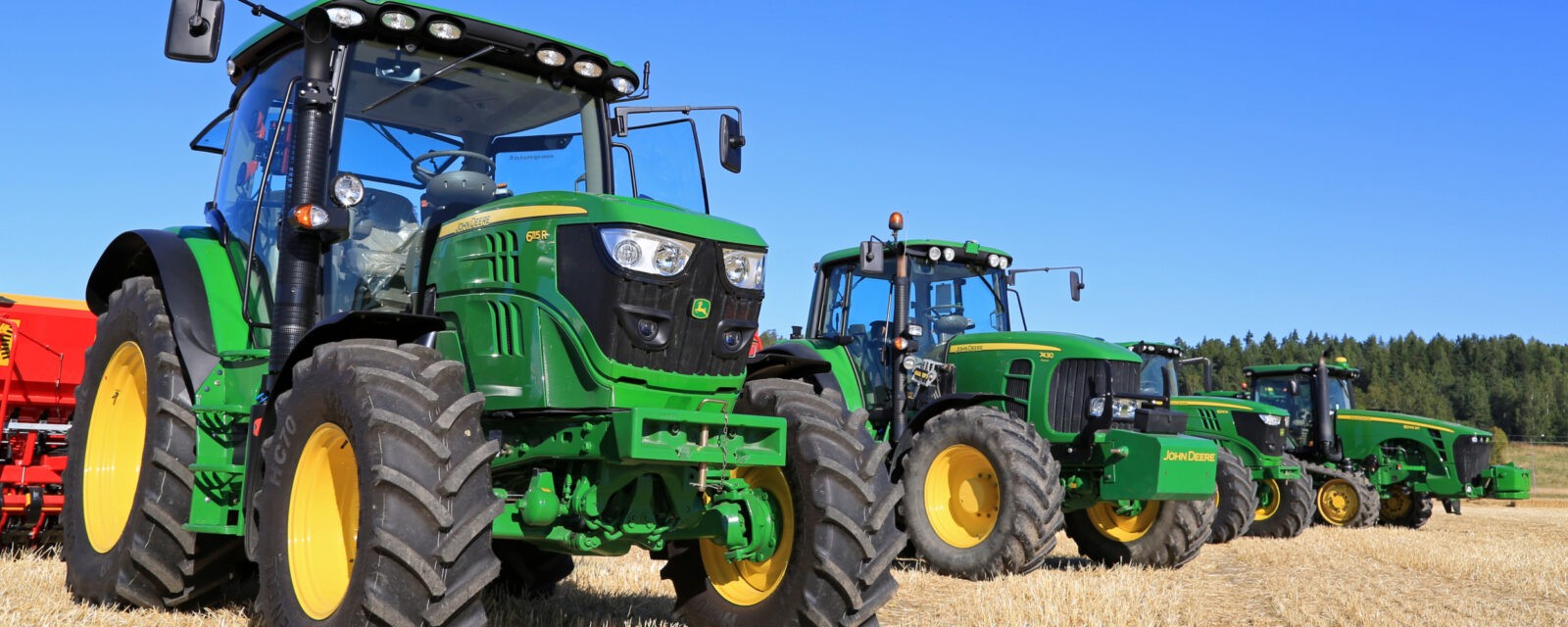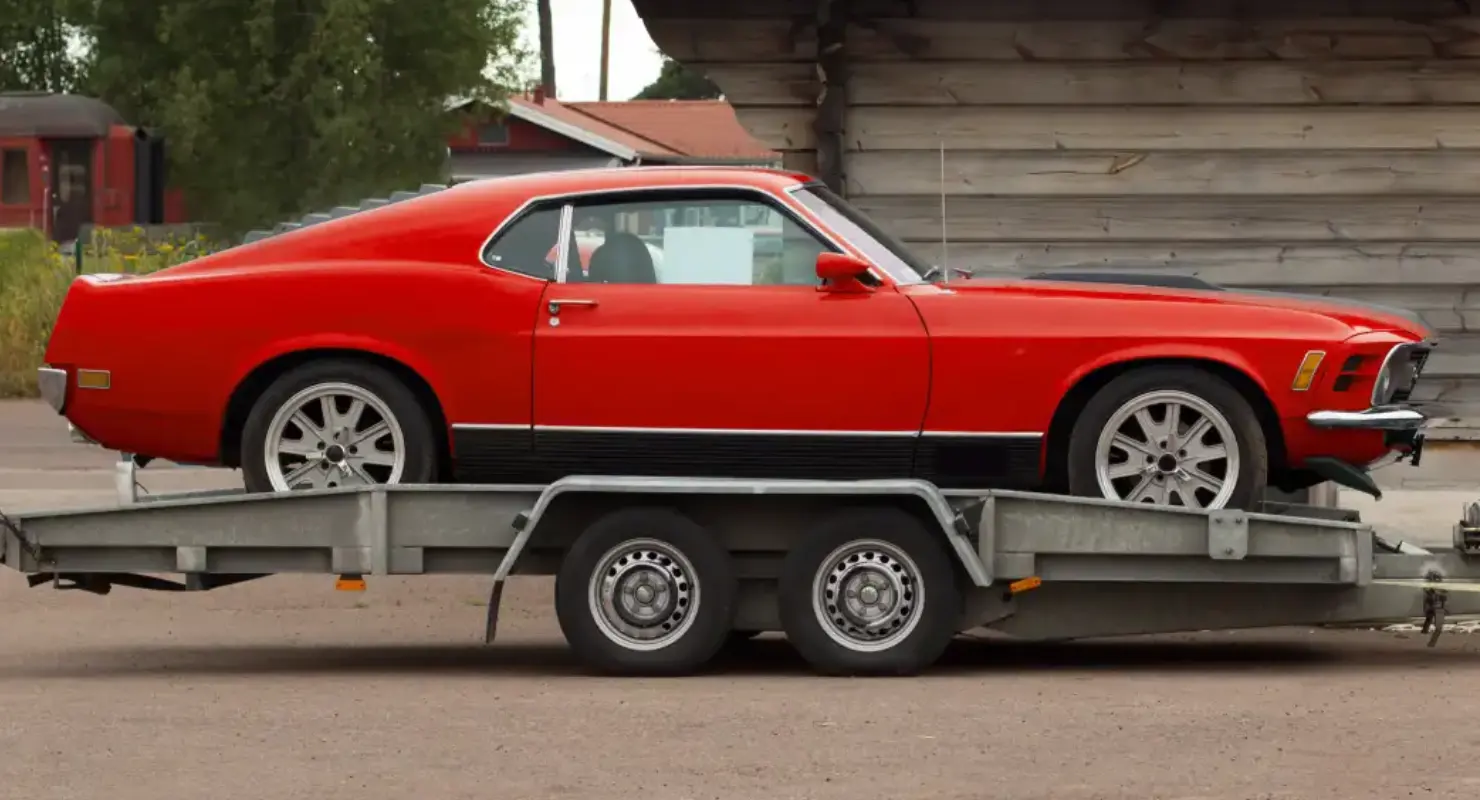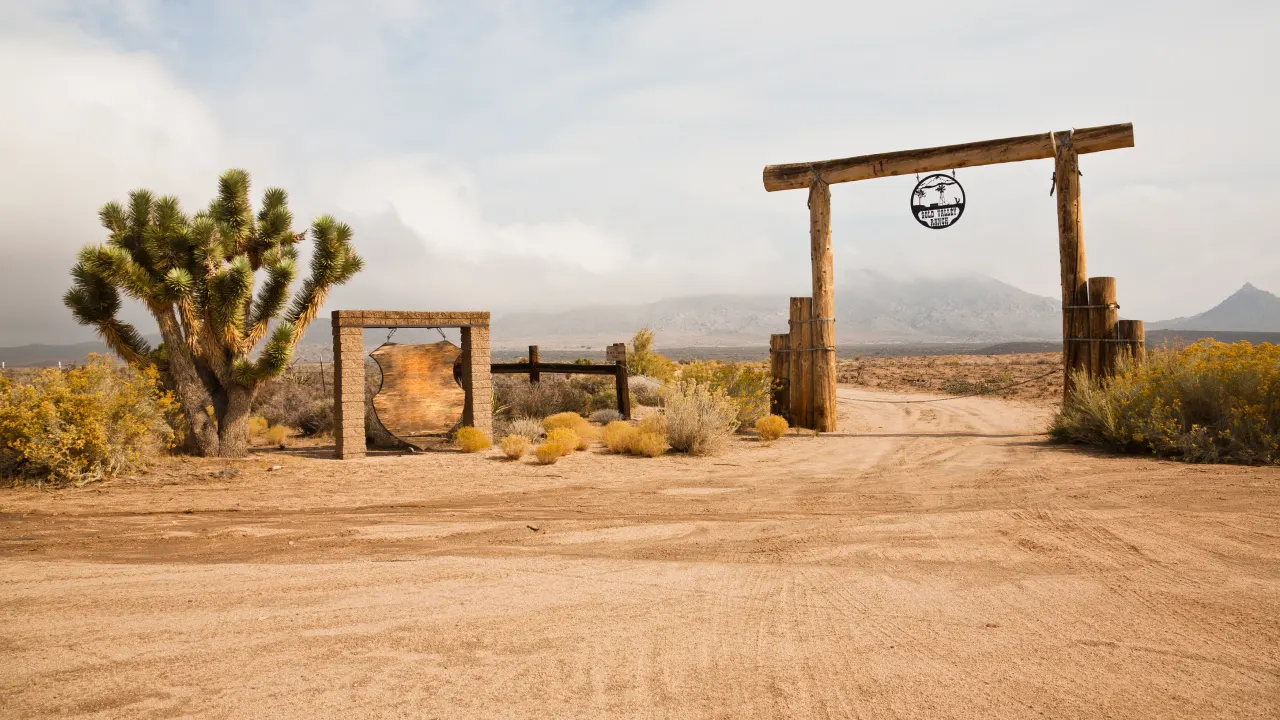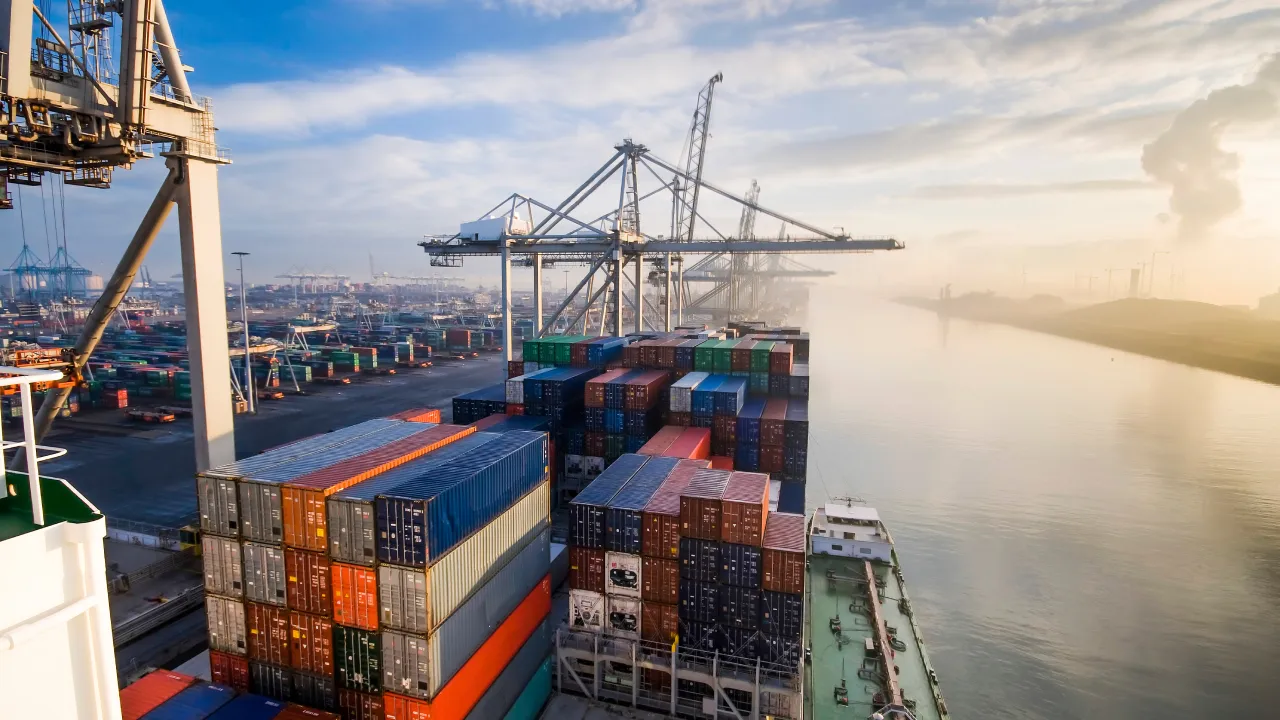
The agricultural sector stands as a cornerstone of the United States economy, vital for both domestic needs and global food supply. In this era of large-scale agriculture, farmers increasingly depend on reputable and dependable shipping and trucking companies to transport their produce and machinery.
Integral to this sector’s success is the advanced farm equipment that has revolutionized modern agriculture, enhancing productivity and efficiency. These machines, ranging from tractors to harvesters, are the lifeline of efficient farming practices.
Leading US Manufacturers of Farm Equipment

- John Deere. Founded in 1837, John Deere has become synonymous with agricultural equipment. Known for their reliable tractors, they also lead in technological innovations like precision agriculture tools.
- Case IH. A merger of Case and International Harvester in 1985 created Case IH. They are renowned for their advanced tractors and harvesters and have contributed significantly to the mechanization of agriculture.
- New Holland, established in 1895, is recognized for its diverse range of equipment, including tractors, balers, and combine harvesters. They’ve pioneered environmentally friendly technologies in farm machinery.
- Caterpillar Inc. While primarily known for construction machinery, Caterpillar also offers a line of agricultural equipment. They’re noted for their durable and high-performance machinery, including loaders and excavators suitable for farm use.
- AGCO Corporation. Formed in 1990, AGCO has rapidly grown, offering products under various brands like Massey Ferguson and Fendt. Their equipment range includes tractors, combines, and sprayers, focusing on innovation and reliability.
- Kubota. Originating in Japan but with a strong presence in the US, Kubota is recognized for compact tractors and heavy equipment. Their machinery is acclaimed for versatility and advanced technology in compact designs.
- Vermeer Corporation. Founded in 1948, Vermeer specializes in agricultural and industrial equipment. They are well-known for their balers and hay and forage equipment, with a focus on durability and efficiency.
- CLAAS. A leading international manufacturer, CLAAS has a strong presence in the US, famous for their high-quality combines, forage harvesters, and tractors. They are at the forefront of harvesting technology innovation.
- Kinze Manufacturing. Established in 1965, Kinze is renowned for its innovative planting and grain auger equipment. They have made significant contributions to planting efficiency with their technologically advanced planters.
- Mahindra USA. A subsidiary of the Indian multinational Mahindra Group, Mahindra USA specializes in compact and subcompact tractors. They are known for their robust and efficient designs, catering to small and medium-sized farms.
Common Types of Farm Equipment Used in the U.S.
Tractors
Tractors have become indispensable machinery in contemporary agricultural practices. Their ubiquitous presence across landscapes reflects their crucial role in powering various farm operations. The sheer variety of sizes and specifications available ensures that farmers can find the perfect tractor to match their specific needs and land size.
The availability of numerous attachments and implements boasts a remarkable versatility for tractors. Tractors can be used for:
- Tiling and cultivation. Preparing the soil for planting through plowing, harrowing, and disking
- Planting and seeding. Accurately sowing seeds at optimal depths and spacing for better crop establishment
- Fertilizing and spraying. Efficiently applying fertilizers, pesticides, and herbicides for enhanced crop health and pest control
- Haymaking and harvesting. Mowing, baling, and transporting hay and other crops with ease
- Transporting materials. Efficiently moving crops, livestock, and farm equipment across the land
Harrows
The harrow plays a crucial role in agricultural practices, serving as a fundamental tool for shallow tillage, a vital stage in crop production. Following the act of plowing, which typically breaks up larger clods of soil, the harrow comes into play to further refine the earth’s surface.
Its primary function is to:
- Break up and pulverize remaining clods. This creates a finely textured seedbed, ideal for planting seeds at uniform depths, promoting optimal germination and seedling growth
- Level the soil. This facilitates consistent water distribution and prevents pooling, minimizing the risk of erosion and ensuring uniform plant growth
- Incorporate crop residues and fertilizers. By mixing these elements into the topsoil, the harrow enhances soil fertility and nutrient availability for crops
Balers
Balers play a crucial role in post-harvest management on farms, serving to transform loose, harvested crops into compact, easily transportable, and storable bales.
While often referred to as ‘hay balers’, these machines cater to a diverse range of harvested crops, including:
- Hay and fodder. Compressed into square, round, or net-wrapped bales for livestock feed
- Cotton. Baled for efficient ginning and processing of fibers
- Flax straw. Compacted for use in textiles, construction materials, and biofuels
- Salt marsh hay. Bundled for use in land management, erosion control, and animal bedding
- Silage. Packed and preserved for efficient animal feed
Fertilizer Spreaders
Fertilizer spreaders are critical agricultural tools dedicated to the uniform application of fertilizers across designated areas. Primarily mounted on tractors for efficiency and precise control, these machines ensure optimal distribution of vital nutrients, leading to rapid and effective field fertilization.
Let’s have a look at the types and applications of spreaders:
- Centrifugal spreaders. These are the most common type, employing rotating disks or drums to fling fertilizer granules outwards, achieving broad coverage
- Pendulum spreaders. Utilizing oscillating tubes, these spreaders distribute fertilizer in precise bands, ideal for row crops like corn and soybeans
- Pneumatic spreaders. Utilizing pressurized air, these advanced spreaders achieve exceptional accuracy and uniform distribution, even with lightweight or wind-sensitive fertilizers
Of course, this is not the full list of farm equipment that is used in the agricultural sector in the US, but here we focused on the basic and important machinery for farmers.
Challenges Customers Face When Shipping Farm Equipment
Shipping farm equipment poses several challenges for companies, primarily due to the nature and scale of the equipment involved. Let’s have a look at some key issues.
Size and weight
Farm equipment often includes large and heavy machinery, like tractors and harvesters, which can exceed standard shipping size and weight limits. This necessitates special handling and transportation methods, such as flatbed trucks or specialized trailers, which can increase costs.
Logistics and route planning
Due to the oversized nature of many pieces of farm equipment, route planning becomes complex. Transporters need to consider road restrictions, bridge weight limits, and clearance heights.
Cost
Shipping large and heavy equipment is expensive. The cost escalates with the transportation distance and the need for specialized shipping methods and equipment.
Regulatory compliance
Different regions and countries have varying regulations regarding the transportation of oversized loads. Companies must ensure compliance with these regulations, which can include permits, escort vehicles, and specific transit times.
Risk of damage
Farm equipment, often being complex and expensive, is prone to damage during transit. Ensuring proper packaging, handling, and insurance coverage is crucial to mitigate this risk.
Addressing these challenges requires meticulous planning, coordination, and sometimes significant investment, making shipping farm equipment a very specialized endeavor.
How to ship heavy equipment via ocean freight?
How Atlantic Project Cargo Can Help Overcome Challenges
Atlantic Project Cargo specializes in shipping heavy and oversized equipment, such as farming machinery, both domestically and internationally.
Our expertise extends to managing complex logistics for air freight and ocean cargo, ensuring safe, efficient, and cost-effective delivery. Our services are backed by full licensing, bonding, and insurance, demonstrating a commitment to quality and customer peace of mind.
What the Future Holds for Shipping of Heavy Agricultural and Construction Equipment
The future of farm and construction equipment shipping, both domestically and internationally, is set to evolve significantly with the integration of advanced technologies.
Key trends include the adoption of autonomous and electric vehicles for more efficient and eco-friendly transport, enhanced use of GPS and IoT for real-time tracking and route optimization, and increased reliance on AI for predictive maintenance and logistics management.
These advancements will streamline the shipping process, reduce environmental impact, and improve overall efficiency. Globally, the sector will probably see a shift towards standardized regulations to facilitate smoother international transport and customs processes. This modernization, driven by technological innovation and a focus on sustainability, aims to create a more interconnected and efficient global supply chain for heavy machinery.
Other Services Offered by Atlantic Project Cargo
Atlantic Project Cargo provides an extensive range of additional offerings, such as universally applicable cargo insurance, customs brokerage services that cover Temporary Import Bonds (TIB), skill in Importer Security Filing (ISF), and comprehensive management from start to finish. Our services also encompass the disassembly of machinery and loading into containers.
At Atlantic Project Cargo, we’re your reliable partner for handling all customs and managing international heavy and oversized freights. You can reach out to our dedicated team at +1 (305) 224-1975 or email us at [email protected].
Read More



